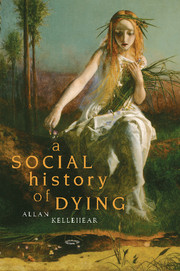Book contents
- Frontmatter
- Contents
- Acknowledgements
- Introduction
- Part I THE STONE AGE
- Chapter One The Dawn of Mortal Awareness
- Chapter Two Otherworld Journeys: Death as Dying
- Chapter Three The First Challenge: Anticipating Death
- Part II THE PASTORAL AGE
- Part III THE AGE OF THE CITY
- Part IV THE COSMOPOLITAN AGE
- Conclusion
- Bibliography
- Index
Chapter One - The Dawn of Mortal Awareness
Published online by Cambridge University Press: 22 September 2009
- Frontmatter
- Contents
- Acknowledgements
- Introduction
- Part I THE STONE AGE
- Chapter One The Dawn of Mortal Awareness
- Chapter Two Otherworld Journeys: Death as Dying
- Chapter Three The First Challenge: Anticipating Death
- Part II THE PASTORAL AGE
- Part III THE AGE OF THE CITY
- Part IV THE COSMOPOLITAN AGE
- Conclusion
- Bibliography
- Index
Summary
Every animal understands death. Human beings do not differ in this respect and have never done so. There has been a long history in Western literature that has drawn an artificial line between us and the animals, but much of this was motivated by a Christian belief that we were more like the angels than the beasts (Bednarik 2003: 513). Only human beings know that they will die, ‘something that the rest of the universe knows nothing about’, asserted Blaise Pascal (1941: 116). ‘The human race is the only one that knows it must die and it only knows this through its experience’, agrees Voltaire (quoted in Enright 1987: ix) and adds for good measure, ‘A child brought up alone and transported to a desert island would have no more of an idea of death than a cat or a plant.’ He underestimates the cat, I suspect.
Recently, humanists such as Ernest Becker (1972) and Norbert Elias (1985) have argued for the unique status of being human because of our ‘special’ awareness of mortality inherited by us from the gift of ego development rather than from any divine nature. ‘Only humans know death because the ego fixes time’, Becker asserts (1972: 28), dismissing the ‘lower animals’ in the same paragraph as not only ignorant of mortal awareness but even incapable of being able to tell what day it is.
- Type
- Chapter
- Information
- A Social History of Dying , pp. 11 - 27Publisher: Cambridge University PressPrint publication year: 2007



